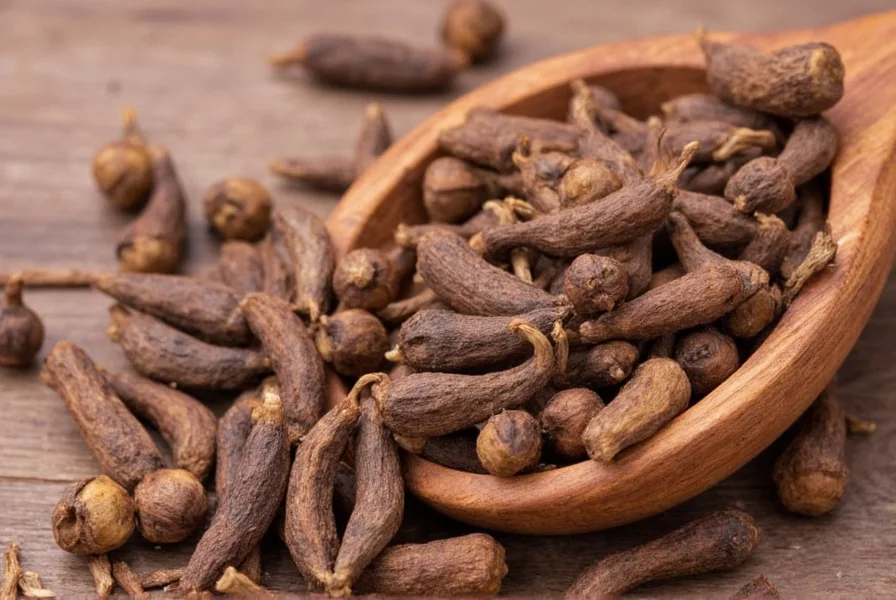Many people search for information about smoking cloves out of curiosity or as a potential alternative to traditional tobacco products. Understanding the reality behind clove smoking is crucial for making informed decisions about your health. This comprehensive guide examines the practice from scientific, historical, and health perspectives.
What Exactly Are Cloves and How Are They Smoked?
Cloves (Syzygium aromaticum) are aromatic flower buds from an evergreen tree native to Indonesia. While commonly used as a spice and in traditional medicine, some people smoke them either alone or mixed with tobacco. The practice of smoking cloves became globally recognized through kreteks, Indonesian cigarettes containing approximately 60-80% tobacco and 20-40% ground cloves.
The History Behind Clove Smoking Practices
Clove smoking originated in 19th century Indonesia, where workers reportedly began adding cloves to tobacco to enhance flavor and purported medicinal benefits. By the early 20th century, kreteks had become a cultural staple in Indonesia. Despite their traditional roots, modern research reveals significant health concerns associated with this practice that weren't understood historically.
How Clove Smoking Differs From Traditional Tobacco Smoking
While both involve inhaling smoke, there are important distinctions between smoking cloves and conventional cigarettes:
| Characteristic | Clove Smoking (Kreteks) | Traditional Tobacco |
|---|---|---|
| Primary Additive | Eugenol (60-90mg per cigarette) | None |
| Smoke Temperature | Higher (due to eugenol combustion) | Lower |
| Reported Sensation | Numbing effect on throat | Irritating to throat |
| Common Misconception | "Natural" and safer alternative | Known health risks |
Scientific Evidence on Health Effects of Smoking Cloves
Research consistently demonstrates that smoking cloves carries substantial health risks. A comprehensive review published in the Journal of Adolescent Health found that kretek smokers experience similar or worse respiratory symptoms compared to regular cigarette smokers.
Documented Short-Term Effects
- Immediate throat numbing followed by irritation
- Increased coughing and wheezing
- Shortness of breath during physical activity
- Acute lung inflammation
- Higher carbon monoxide levels in blood
Documented Long-Term Health Risks
The U.S. Centers for Disease Control and Prevention (CDC) has documented several serious long-term consequences associated with regular clove smoking:
- Lung damage: Eugenol in cloves may cause acute lung injury and worsen existing respiratory conditions
- Increased addiction potential: The numbing effect allows deeper inhalation, potentially increasing nicotine absorption
- Respiratory illnesses: Higher incidence of chronic bronchitis and asthma exacerbations
- Oral health problems: Increased risk of gum disease and oral infections
- Cardiovascular strain: Similar heart rate and blood pressure effects as tobacco smoking
Regulatory Status of Clove Cigarettes Worldwide
Due to growing evidence of health risks, many countries have implemented restrictions on clove cigarettes. In the United States, the 2009 Family Smoking Prevention and Tobacco Control Act banned flavored cigarettes, including kreteks, with exceptions for menthol. Indonesia remains one of the few countries where kreteks are widely available and culturally accepted, though even there, health warnings are now required on packaging.
Common Misconceptions About Smoking Cloves
Several persistent myths surround clove smoking that deserve clarification:
- "Natural means safe" - Just because cloves are a natural plant product doesn't make smoking them safe. Many toxic substances are naturally occurring
- "Clove smoking helps quit tobacco" - Research shows kreteks typically contain tobacco and may actually reinforce nicotine addiction
- "Eugenol has medicinal benefits when smoked" - While eugenol has topical medicinal properties, inhaling it as smoke creates different chemical compounds with harmful effects
When to Consult a Healthcare Professional
If you smoke cloves regularly or have experimented with clove smoking and experience any of the following symptoms, consult a healthcare provider immediately:
- Persistent cough lasting more than two weeks
- Wheezing or shortness of breath during normal activities
- Chest pain or tightness
- Frequent respiratory infections
- Unexplained fatigue
Research Gaps and Ongoing Studies
While significant research exists on traditional tobacco products, studies specifically focused on clove smoking remain limited. Current research priorities include understanding the long-term cardiovascular effects of eugenol inhalation and whether clove smoking serves as a gateway to other tobacco products among youth. The World Health Organization continues to monitor emerging research on alternative smoking products including those containing cloves.
Frequently Asked Questions About Smoking Cloves
Is smoking cloves safer than smoking regular cigarettes?
No, smoking cloves is not safer than regular cigarettes. Research shows clove cigarettes (kreteks) deliver similar or higher levels of nicotine, tar, and carbon monoxide. The eugenol in cloves creates a numbing effect that may encourage deeper inhalation, potentially increasing exposure to harmful substances.
Can smoking cloves cause lung damage?
Yes, multiple studies have documented that smoking cloves can cause significant lung damage. The eugenol in cloves may lead to acute lung injury, and regular use is associated with chronic bronchitis, reduced lung function, and increased respiratory symptoms similar to those caused by tobacco smoking.
Are clove cigarettes addictive?
Yes, most clove cigarettes contain tobacco and therefore deliver nicotine, which is highly addictive. The numbing effect of eugenol may allow for deeper inhalation, potentially increasing nicotine absorption and addiction potential compared to regular cigarettes.
Is it legal to buy clove cigarettes in the United States?
Since 2009, the U.S. Food and Drug Administration has banned the sale of flavored cigarettes, including clove cigarettes (kreteks), with the exception of menthol. This ban was implemented through the Family Smoking Prevention and Tobacco Control Act due to concerns about youth appeal and health risks.
Can cloves be used safely for medicinal purposes without smoking?
Yes, cloves have legitimate medicinal uses when not smoked. Eugenol, the main compound in cloves, is used in dentistry for its antiseptic and analgesic properties. Clove oil can be applied topically (properly diluted) for toothaches, but should never be ingested in concentrated form. The health risks specifically relate to inhaling clove smoke.











 浙公网安备
33010002000092号
浙公网安备
33010002000092号 浙B2-20120091-4
浙B2-20120091-4